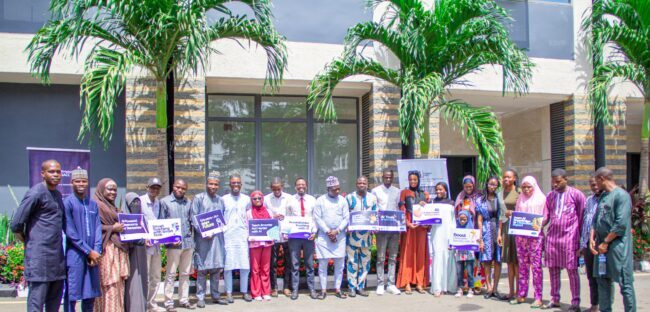A Kwara-based non-profit organisation, Pristine SACC Education and Technology Initiative (P-SACC), has trained 30 selected teachers and school administrators in Ilorin, the Kwara State capital, on the integration of artificial intelligence (AI) in educational activities.
Speaking during the training programme, the executive director of Pristine SACC Education and Technology Initiative (P-SACC), Mrs Umar Aisha, explained that the training, themed ‘AI Guidance for Schools’, aimed to equip educators with the knowledge and skills to effectively incorporate AI tools into their teaching and administrative practices.
Aisha disclosed that the programme was part of her organisation’s commitment to advancing education through technology, ensuring that teachers and school leaders are prepared to navigate the digital age.
She also said that AI has the potential to revolutionise the education sector, making it crucial for educators to embrace relevant AI innovations to stay ahead and make an impact.
“During the training, participants were introduced to various AI applications that can enhance classroom learning, streamline school management and improve student outcomes,” she said.
Also speaking at the programme, an ICT expert and lecturer at Al-Hikmah University, Ilorin, Dr Adeseko Sunday Olaifa, explored the usage of AI in schools, its associated risks, and how to ensure responsible usage in schools.
According to him, AI has the power to enhance the productivity of educationists, ensure personalised learning for students, and streamline administrative tasks.
He, however, noted that while AI offers immense benefits for schools, there are several risks associated with its usage, such as data privacy issues, potential overreliance, and diminished critical thinking.
In order to mitigate these potential risks, Dr Olaifa suggested a framework that can be adopted by schools to protect school administrators, teachers, and students while utilising AI regardless of its types.
The Partnerships Manager at P-SACC, Abdullah AbdulRahman, facilitated an engaging session on prompt engineering, a critical aspect of effective AI usage.
He underscored the importance of providing clear context and ensuring specificity when using AI for school-related activities. This approach, he explained, not only safeguards data but also enables AI to deliver tailored solutions instead of generic responses resulting from vague prompts.
Earlier in his address, the Programme Director of the organisation, Sodiq Ajala, the Partnerships Director, emphasised that AI in schools is designed to complement the efforts of educational stakeholders, not replace them. “AI will not replace teachers. Rather, it will replace teachers who fail to adapt with those who embrace it,” he stated.
READ MORE FROM: NIGERIAN TRIBUNE
